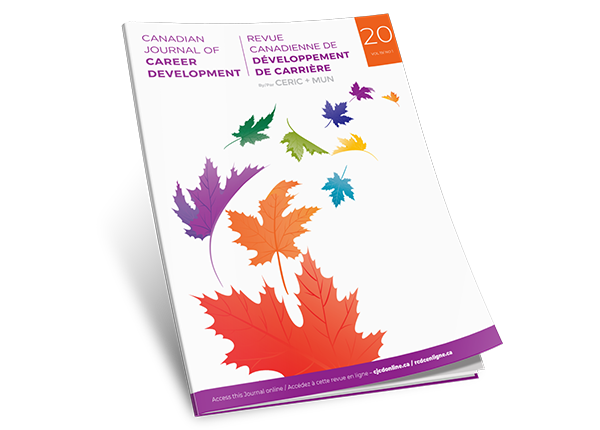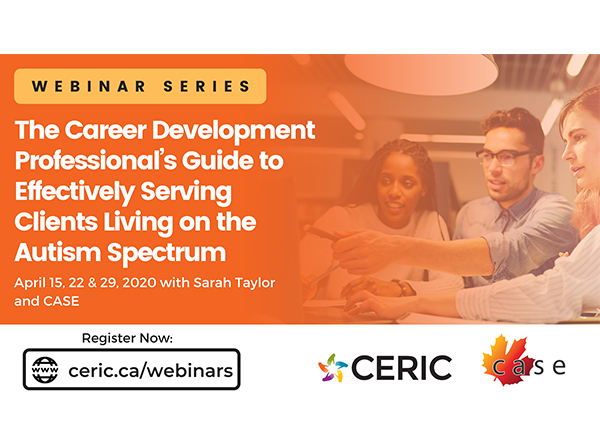
Latest issue of Canadian Journal of Career Development released
February 21, 2020
New webinar series helps career professionals serve clients living on the autism spectrum
February 26, 2020Last year, CERIC offered two series of free webinars based on its book Career Theories and Models at Work: Ideas for Practice, co-edited by Nancy Arthur, Roberta Neault and Mary McMahon. Following the popularity of these learning opportunities, we are continuing to invite more contributing authors to highlight their career development theories through free webinars starting in April.
CERIC’s Career Theories and Models at Work: Ideas for Practice is an international collection of 43 contemporary and emerging career development theories and models that aims to inform the practice of career development professionals around the globe. It is also intended to be used as a text for undergraduate and graduate career counselling courses.
As part of this latest free webinar series, we are offering two English webinars and two French webinars.
- Webinar #1: Making Sense of Career Transitions Through the Theory of Work Adjustment | Monday, April 20, 2020, 8:00 pm – 9:00 pm ET, presented by Jon Woodend, James Cook University, Australia (English)
- Webinar #2: An Adaptive Decision-making Approach to Career Counselling | Friday, April 24, 2020, 12:00 pm – 1:00 pm ET, presented by Louis Cournoyer, Université du Québec à Montréal, Canada (French)
- Webinar #3: Psychological Health at Work: The Importance of Taking Care of Our Work and Defending Our Occupation | Monday, April 27, 2020, 12:00 pm – 1:00 pm ET, presented by Simon Viviers, Laval University, Canada (French)
- Webinar #4: Psychology of Working Theory: A Transformative Approach to Work and Career | Friday, May 1, 2020, 12:00 pm – 1:00 pm ET, presented by David L. Blustein, Boston College, USA (English)
Anyone who registers will be sent the webinar recordings. These will be available one week after the webinar series ends. Captions will be added in both English and French to all recordings, making them accessible for all participants.

